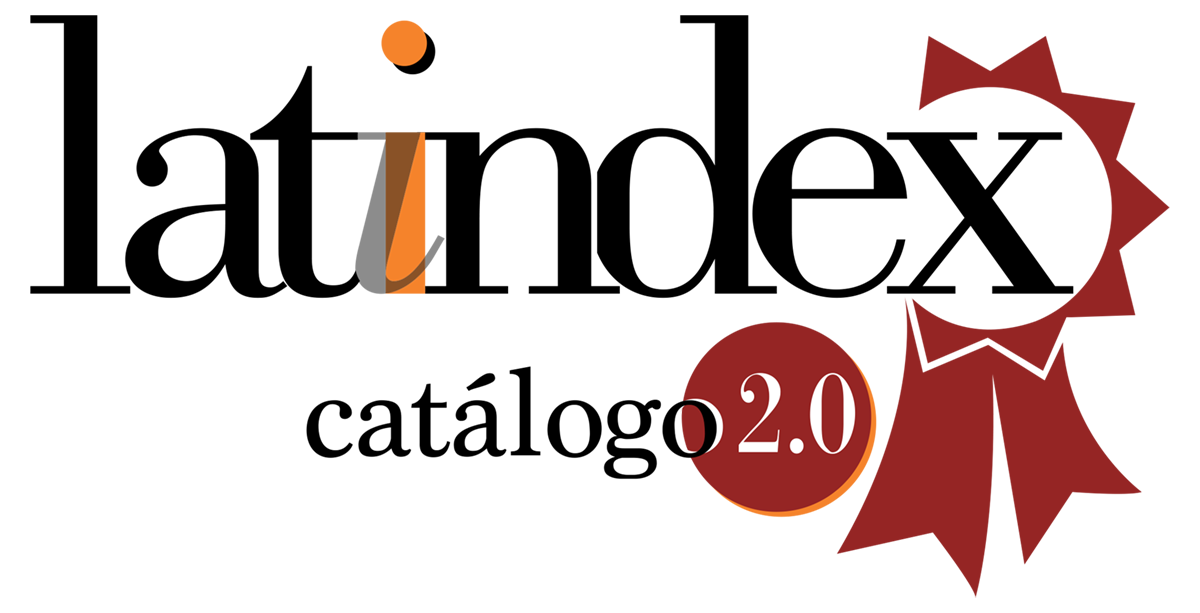Women in deprivation of liberty
narratives of obstetric un(assistance)
DOI:
https://doi.org/10.5935/1415.2762.20200083Keywords:
Prisons, Pregnancy, Postpartum Period, Obstetric Nursing, Violence Against WomenAbstract
Objective: to reveal narratives of women deprived of their liberty about the obstetric care offered during the experience of the pregnancy-puerperal cycle. Method: exploratory, qualitative study, based on oral history. Data collection was carried out in a female prison institution in a state in the Northeast, with six women who were experiencing some period of the pregnancy-puerperal cycle. The interviews were carried out by a cohort and analyzed using the content analysis technique. Results: fragility of health care prevailed in the speeches in all phases of the pregnancy-puerperal cycle, involving un(assistance) prenatal care, unperceived experience of violence obstetric, feelings of abandonment duringdelivery and lack of an adequate environment for newborns within the correctional facility. Conclusion: the characteristics evaluated contribute to foster new reflections on
the standard of care for women deprived of their liberty and their children and emphasize the need for political and administrative reorganization of the prison system within the scope of SUS.
Downloads
References
Walmsley R. World Prison Population List. 12th ed. London: Institute for Criminal Policy Research; 2018[citado em 2019 nov. 14]. Disponível em: https://www.prisonstudies.org/sites/default/files/resources/downloads/wppl_12.pdf
Ferrari IF, Simões VFN. Female inmates and their children: criminal judicial system in perspective. Psicol Clín. 2019[citado em 2019 nov. 14];31(3):421-37. Disponível em: http://dx.doi.org/10.33208/PC1980-5438v0031n03A01
Simões HV, Bartolomeu PC, Sá PP. Worth how much it weights: what leads pregnant women to prison? Rev Est Emp Dir. 2017[citado em 2019 dez. 17];4(3):145-61. Disponível em: https://doi.org/10.19092/reed.v4i3.274
Baldwin A, Sobolewska A, Capper T. Pregnant women in prison: an integrative literature review. Women Birth. 2018[citado em 2019 nov. 16];917:1-10. Disponível em: https://doi.org/10.1016/j.wombi.2018.12.004
Knittel A, Ti A, Schear S, Comfort M. Evidence-based recommendations to improve reproductive healthcare for incarcerated women. Int J Prison Health. 2017[citado em 2019 nov. 16];13(3/4): 200-6. Disponível em: https://doi.org/10.1108/ijph-07-2016-0031
Ministério da Justiça (BR). Lei nº 11.942, de 28 de maio de 2009. Lei de Execução Penal, para assegurar às mães presas e aos recém-nascidos condições mínimas de assistência. Brasília, DF; 2009[citado em 2019 nov. 28]. Disponível em: http://www.planalto.gov.br/ccivil_03/_Ato2007-2010/2009/Lei/L11942.htm
Leal MC, Ayres BVS, Esteves-Pereira AP, Sánchez AR, Larouzé B. Birth in prison: pregnancy and birth behind bars in Brazil. Ciênc Saúde Colet. 2016[citado em 2019 dez. 17];21(7):2061-70. Disponível em: http://dx.doi.org/10.1590/1413-81232015217.02592016
Matos KKC, Silva SPC, Lima JKS. Representations of incarcerated women about prison management. Rev Enferm UFPE OnLine. 2018[citado em 2019 dez. 20];12(11): 3069-77. Disponível em: https://doi.org/10.5205/1981-8963-v12i11a235006p3069-3077-2018
Santana AT, Oliveira CRSA, Bispo TCF. Mothers in prison: pregnant women experiences facing prenatal care. Rev Baiana Saúde Pública. 2016[citado em 2019 dez. 23];40(1):38-54. Disponível em: https://doi.org/10.22278/2318-2660.2016.v40.n1.a778
Sena LM, Tesser CD. Violência obstétrica no Brasil e o ciberativismo de mulheres mães: relato de duas experiências. Interface (Botucatu). 2017[citado em 2020 fev. 15];21(60):209-20. Disponível em: https://doi.org/10.1590/1807-57622015.0896
Jardim DMB, Modena CM. Obstetric violence in the daily routine of care and its characteristics. Rev Latino-Am Enferm. 2018[citado em 2019 dez. 20];26:e3069. Disponível em: http://dx.doi.org/10.1590/1518-8345.2450.306
Ramalho NMG, Ferreira JDL, Lima CLJ, Ferreira TMC, Souto SLU, Maciel GMC. Domestic violence against pregnant women. Rev Enferm UFPE On Line. 2017[citado em 2019 dez. 23];11(12):4999-5008. Disponível em: https://doi.org/10.5205/1981-8963-v11i12a22279p4999-5008-2017
Hout MCV, Mhlanga-Gunda R. Contemporary women prisoners health experiences, unique prison health care needs and health care outcomes in sub Saharan Africa: a scoping review of extant literature. BMC Int Health Hum Rights. 2018[citado em 2019 dez. 20];18(31):1-12. Disponível em: https://doi.org/10.1186/s12914-018-0170-6
Silva NC. Mulheres na prisão: uma imersão aos submundos do encarceramento feminino. Pretextos. 2017[citado em 2020 fev. 15];3(6):641-8. Disponível em: http://periodicos.pucminas.br/index.php/pretextos/article/view/18416
Meihy JCSB, Holanda F. História oral: como fazer, como pensar. São Paulo (SP): Contexto; 2007.
Souza EL, Lyra CO, Costa NDL, Rocha PM, Uchoa AC. Metodologia da pesquisa: aplicabilidade em trabalhos científicos na área da saúde. 2ª ed. Natal (RN): EDUFRN; 2019[citado em 2019 dez. 23]. Disponível em: http://repositorio.ufrn.br:8080/jspui/bitstream/123456789/27909/1/metodologia_da_pesquisa.pdf
Gusmão MAJX, Terças-Trettel ACP, Nascimento VF, Hattori TY, Brescovit LE, Anataka M, et al. Social and family dynamics and vulnerability of incarcerated females. Rev Saúde Pesqui. 2019[citado em 2019 dez. 27];12(1):159-68. Disponível em: https://doi.org/10.17765/2176-9206.2019v12n1p159-168
Cunha AC, Lacerda JT, Alcauza MTR, Natal S. Avaliação da atenção ao pré-natal na Atenção Básica no Brasil. Rev Bras Saúde Mater Infant. 2019[citado em 2019 dez. 27];19(2):459-70. Disponível em: http://dx.doi.org/10.1590/1806-93042019000200011
Diuana V, Ventura M, Simas L, Larouzé B, Correa M. Women's reproductive rights in the penitentiary system: tensions and challenges in the transformation of reality. Ciênc Saúde Colet. 2016[citado em 2019 dez. 26];21(7):2041-50. Disponível em: http://dx.doi.org/10.1590/1413-81232015217.21632015
André HP, Sperandio N, Siqueira RL, Franceschini SCC, Priore SE. Food and nutrition insecurity indicators associated with iron deficiency anemia in Brazilian children: a systematic review. Ciênc Saúde Colet. 2018[citado em 2019 dez. 27];23(4):1159-67. Disponível em: http://dx.doi.org/10.1590/1413-81232018234.16012016
Ministério da Justiça (BR). Lei nº 13.434 de 12 de abril de 2017. Acrescenta parágrafo único ao art. 292 do Decreto-Lei nº 3.689, de 3 de outubro de 1941 (Código de Processo Penal), para vedar o uso de algemas em mulheres grávidas durante o parto e em mulheres durante a fase de puerpério imediato. Brasília, DF; 2017[citado em 2020 jun. 17]. Disponível em: https://www2.camara.leg.br/legin/fed/lei/2017/lei-13434-12-abril-2017-784610-publicacaooriginal-152355-pl.html
Flores YYR, Ledezma AGM, Ibarra LEH, Acevedo CEG. Social construction of obstetric violence of Tenek and Nahuatl women in Mexico. Rev Esc Enferm USP. 2019[citado em 2019 dez. 28];53:e03464. Disponível em: http://dx.doi.org/10.1590/S1980-220X2018028603464
Silva TPR, Carmo AS, Novaes TG, Mendes LL, Moreira AD, Pessoa MC et al. Hospital-acquired conditions and length of stay in the pregnancy and puerperal cycle. Rev Saúde Pública. 2019[citado em 2020 jan. 02];53(64):1-10. Disponível em: http://dx.doi.org/10.11606/s1518-8787.2019053000688
Shlafer RJ, Davis L, Hindt LA, Goshin LS, Gerrity E. Intention and Initiation of Breastfeeding Among Women Who Are Incarcerated. Nurs Womens Health. 2018[citado em 2020 jan. 02];22(1):64-78. Disponível em: https://doi.org/10.1016/j.nwh.2017.12.004
Mariano GJS, Silva IA. The meaning of breastfeeding in prison. Texto & Contexto Enferm. 2018[citado em 2020 jan. 02];27(4):e0590017. Disponível em: http://dx.doi.org/10.1590/0104-07072018000590017
Downloads
Published
Issue
Section
License
Copyright (c) 2021 Reme: Revista Mineira de Enfermagem

This work is licensed under a Creative Commons Attribution 4.0 International License.





































